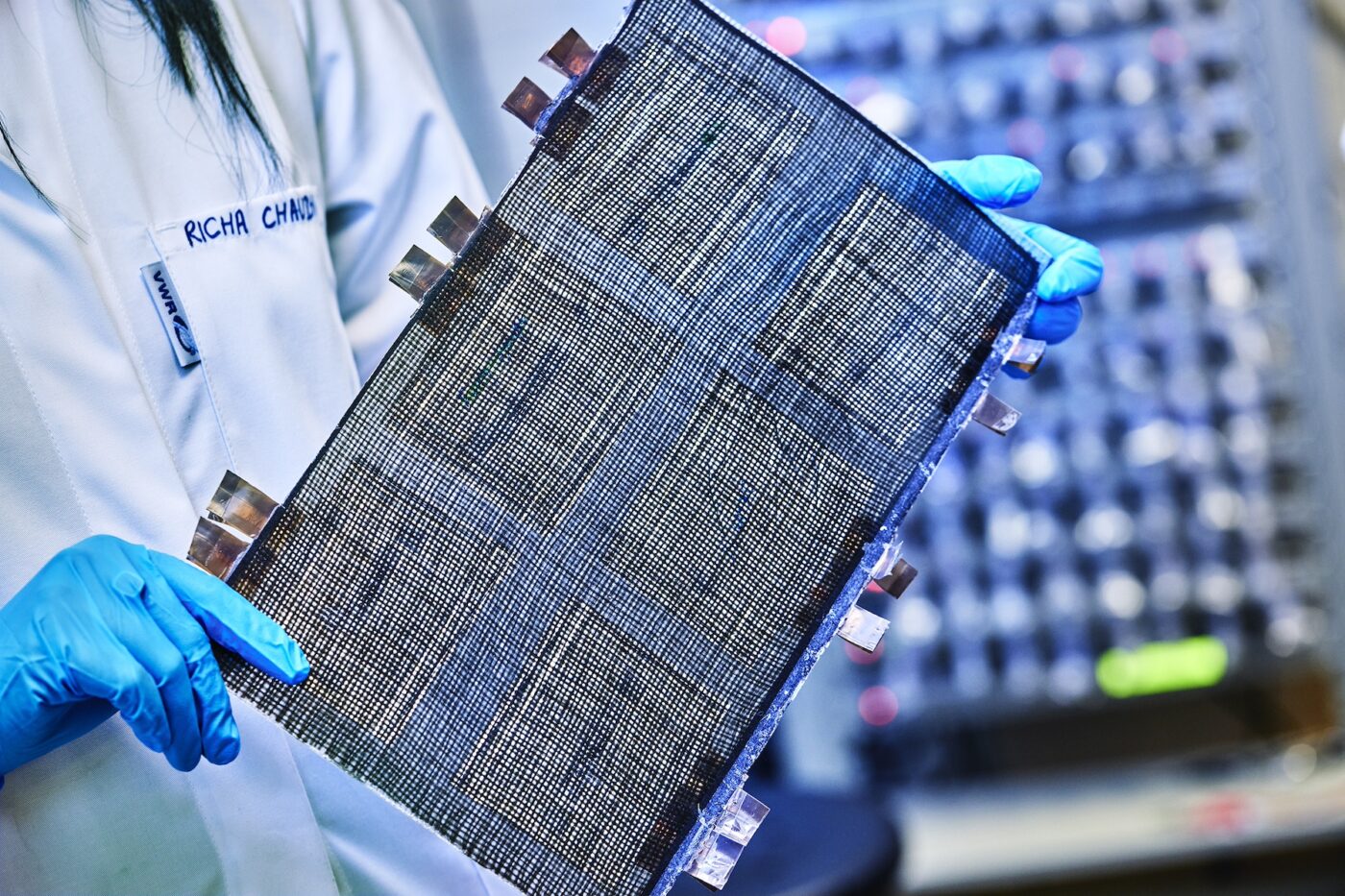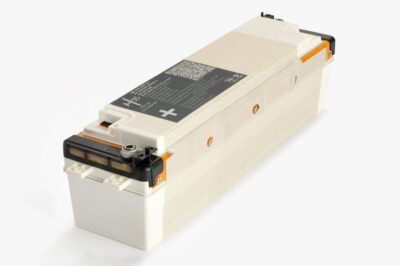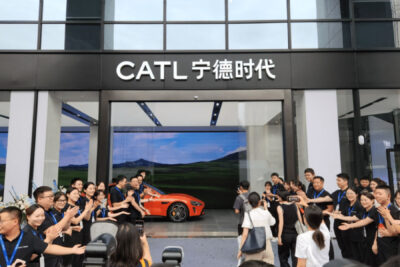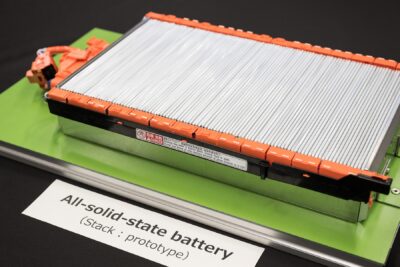Swedish researchers report progress with ‘structural’ battery
“We have succeeded in creating a battery made of carbon fibre composite that is as stiff as aluminium and energy-dense enough to be used commercially. Just like a human skeleton, the battery has several functions at the same time,” explained Chalmers researcher Richa Chaudhary. Research on the structural battery has been ongoing for several years. The researchers announced a previous milestone in 2021, when the battery had an energy density of 24 Wh/kg, which corresponds to around 20 per cent of the capacity of a comparable lithium-ion battery.
Now it is up to 30 Wh/kg. This is still less than today’s batteries, but the conditions are completely different. If the battery is part of the design and can also be made from a lightweight material, the overall weight of the vehicle is greatly reduced. Then, for example, not nearly as much energy is needed to power an electric car.
‘Investing in lightweight and energy-efficient vehicles is a matter of course if we want to save energy and think about future generations. We have made calculations for electric cars that show that they could drive up to 70 per cent longer than they do today if they had competitive structural batteries,‘ says research leader Leif Asp, who is a professor at Chalmers’ Department of Industrial and Materials Science.
When it comes to vehicles, high demands are naturally placed on the design, which must be sufficiently strong to fulfil the safety requirements. The research team’s structural battery cell has increased its rigidity, or more precisely the modulus of elasticity measured in gigapascals (GPa), from 25 to 70. This means that the material is just as strong as aluminium, but weighs less.
“In terms of multifunctional properties, the new battery is twice as good as its predecessor – and actually the best ever made in the world,” explained Leif Asp, who has been researching structural batteries since 2007. The university is already working on the commercialisation of the technology and has spun off the Borås-based company Sinonus for this purpose. However, the researchers also recognise that there is still a lot of development work to be done before the battery cells can make the step from small-scale laboratory production to large-scale production for our technical devices or vehicles.
Structural batteries are materials that not only store energy, but can also carry loads. In this way, the battery material can become part of the actual construction material of a product, which means that a much lower weight can be achieved in electric cars, drones, hand tools, laptops and mobile phones, for example.





0 Comments